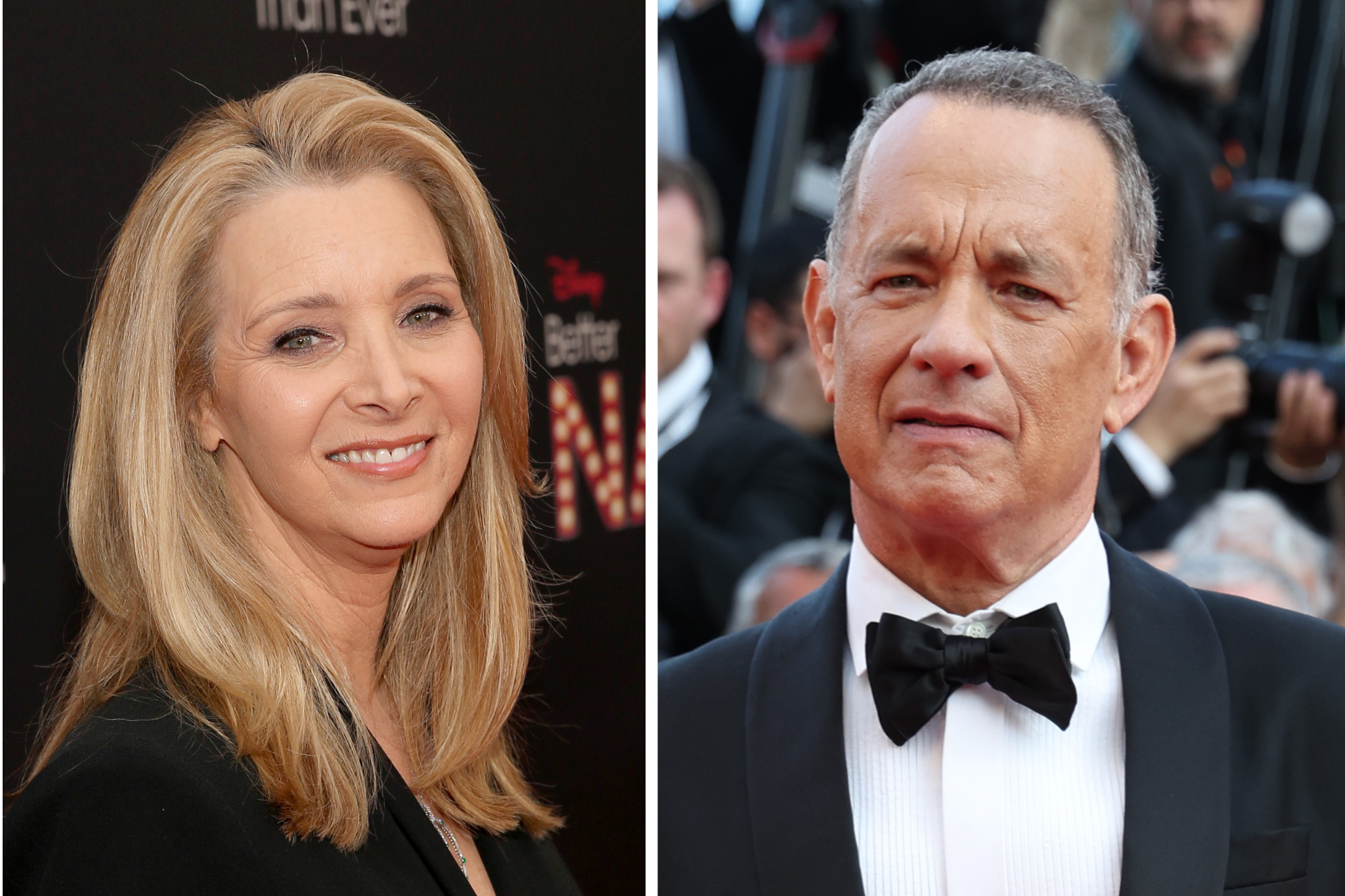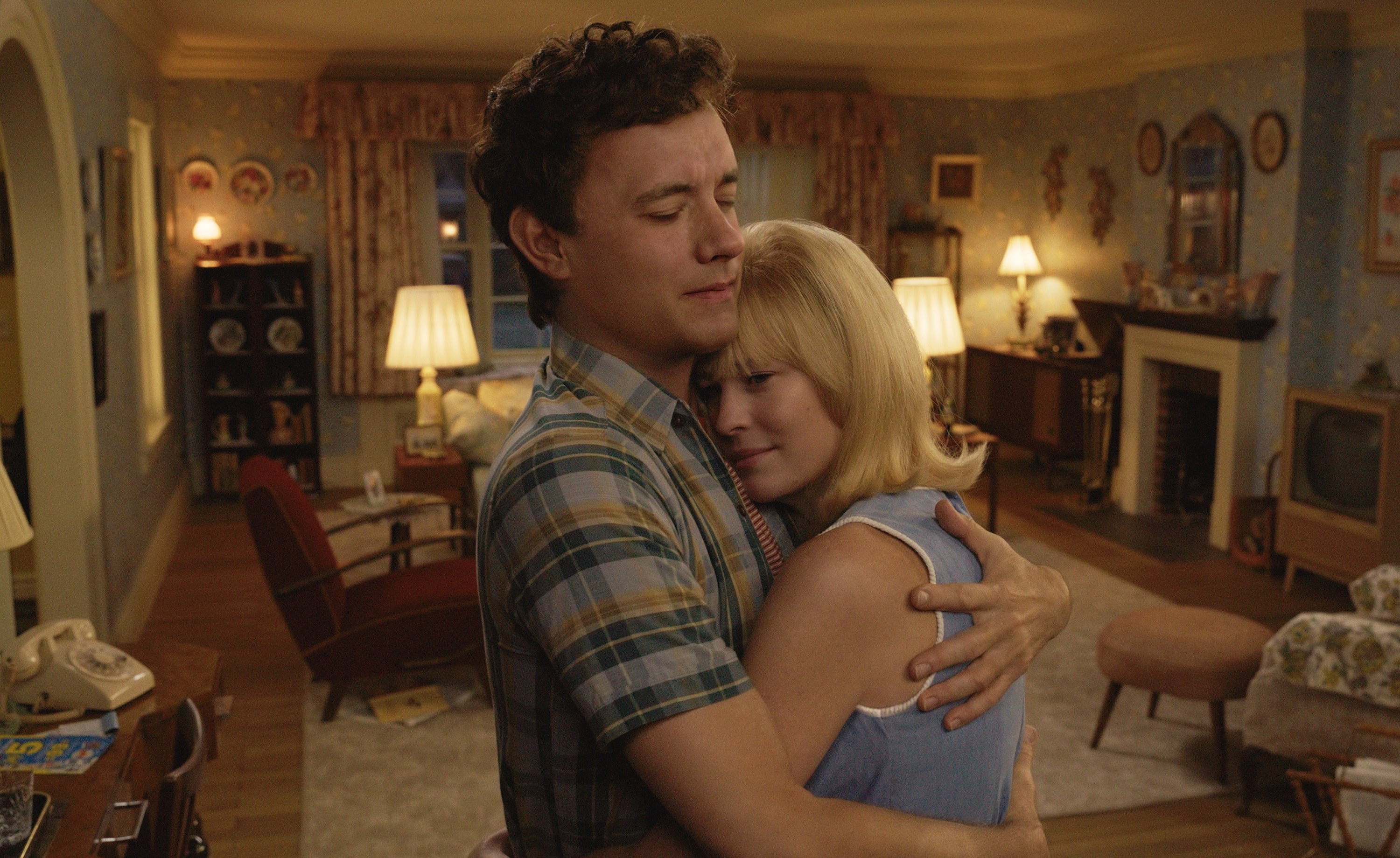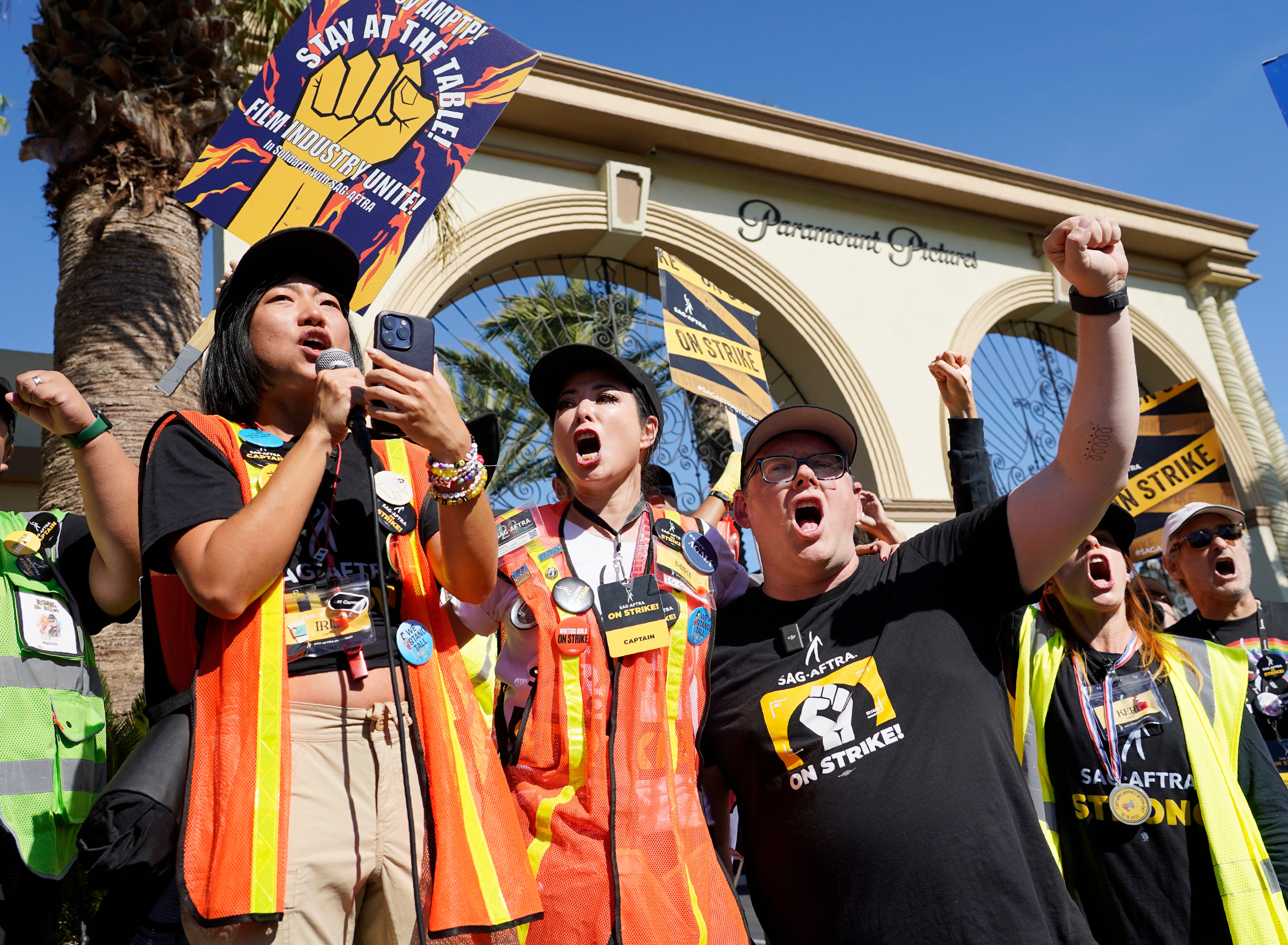Lisa Kudrow has expressed concerns over the use of artificial intelligence in Tom Hanks’ latest project, Here.
The highly anticipated film reunites Hanks and Robin Wright with Forrest Gump director Robert Zemeckis, as well as screenwriter Eric Roth.
Using digital de-ageing technology, Hanks and Wright appear several decades younger in parts of the film, which is based on Richard McGuire’s 2014 graphic novel of the same name, and takes place entirely in one living room over 100 years.
Speaking on the Armchair Expert podcast, Kudrow said: “They shot it, and they could actually shoot the scene and then look at the playback of them as younger, and it’s ready for them to see.
“All I got from that was, this is an endorsement for AI,” the 61-year-old Friends star explained. “It’s not like, ‘Oh it’s going to ruin everything,’ but what will be left?” she continued.
“Forget actors, what about up-and-coming actors? They’ll just be licensing and recycling.
“Set that completely aside, what work will there be for human beings? Then what? There’ll be some kind of living stipend for people, you won’t have to work? How can it possibly be enough?”

Last year, Hanks discussed de-ageing technology on The Adam Buxton Podcast.
“I could get together and pitch a series of seven movies that would star me in them in which I would be 32 years old from now until kingdom come,” he said.
“Anybody can now recreate themselves at any age they are by way of AI or deep fake technology … I could be hit by a bus tomorrow and that’s it, but my performances can go on and on and on.
“Outside of the understanding that it’s been done by AI or deepfake, there’ll be nothing to tell you that it’s not me and me alone and it’s going to have some degree of lifelike quality.”
Zemeckis has addressed concerns over his use of AI technology in the film, claiming the visual effects only exist to support the story.
“I’ve always thought that our job as filmmakers is to show the audience things that they don’t see in real life,” he said. “It only works because the performances are so good.

“Both Tom and Robin understood instantly that, ‘Okay, we have to go back and channel what we were like 50 years ago or 40 years ago, and we have to bring that energy, that kind of posture, and even raise our voices higher. That kind of thing.”
Over the last decade, AI has found several uses in the movie and television industry, from de-aging actors to analysing patterns and behaviours of viewers on streaming platforms, to bringing back the voices of late actors and even helping stitch together entire movie trailers.
As the technology to create without creators emerged, Hollywood hit back with a 118-day long Sag-Aftra strike in July last year.

Many star actors expressed fears they would lose control of their lucrative likenesses. Meanwhile, writers claimed they would lose script-writing work to machines.
In an interview with The Independent, Crazy Ex-Girlfriend writer Rachel Bloom said that AI creates “formulaic” writing, but feared that execs would use AI-generated scripts as a jumping-off point which writers would be asked to hone.
“If you are not artistically ambitious and you’re like, ‘I just want... a formulaic but passable script, that’s very scary,” she said.
“[AI] doesn’t yet extrapolate in the way that writers do, but it very well could very soon.”







